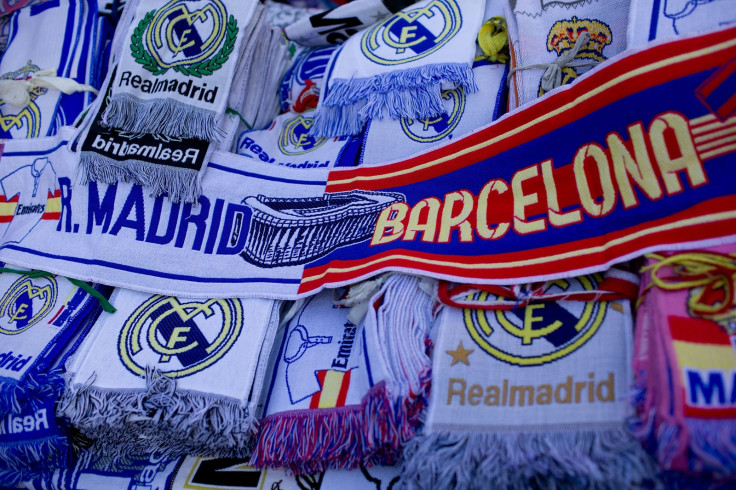Isis war on Cristiano Ronaldo and Lionel Messi is huge PR own goal

It is rare that you find similarities between the leafy boulevards and smart cafes of Jerusalem's Jaffa Street and the hectic, traffic-snarled chaos of Ramallah's Al Manara Square, but on El Clasico matchdays the flags in both Israel and Palestine are the same – blue, red and white.
The one thing (perhaps the only thing) that Israelis and Palestinians of all stripes can agree on is a love for either Real Madrid or Barcelona, and the few times a year that the Spanish titans meet are the times when the heavy and often ugly tension that so often hangs in the air in both cities is refreshingly absent. For between 90 and 120 minutes, they are just fans.
A love for Spanish football is something that applies throughout the Middle East and whether you are a Westerner, Arab, Kurd or Jew, you will be expected to come down on one side of the El Clasico divide, and be prepared to defend your choice forcefully and convincingly.
Banning El Clasico has nothing to do with faith, and everything to do with repression, power and ignorance.
I've watched the match with Zionists and Islamists, soldiers and anarchists. Political or religious divisions mean nothing when Lionel Messi and Cristiano Ronaldo are on the pitch.
Even in Egypt, which has its own closely-followed league and devout fans, ask someone in Cairo who they support and don't be surprised if they say Real or Barcelona before they say Al Ahli or Zamalek. Jordan, Saudi Arabia, Iraq, Israel, Gaza – all are football-mad, and there is no bigger game than El Clasico.
So it was telling when, this week, the news broke that Islamic State (Isis) fighters were banning screenings of the match in Mosul and imposing lashes on those who break the rules. If you needed any more evidence that the so-called religious warriors are far removed from the values and culture of the areas they claim to govern, it is their disdain for El Clasico.
More and more, IS is marking itself out as a foreign force, its ranks swelled with unstable and lost young men and women from the West or elsewhere in the Middle East. Brave residents of Raqqa have protested in the streets and complained of foreign fighters taking the best houses at the expense of Syrians. In an irony of ironies, a group that claims to oppose the 'crusaders' of the West, have become crusaders and occupiers themselves.
Of course it is not just El Clasico where IS is at odds with all but the tiniest minority of the Muslim world. Critics have rightly said that the group's attacks on museums in Mosul and destruction of historical sites are criminal – not religious – acts, and should be treated as such.
Likewise, their banning of a football match which is loved across the Middle East has nothing to do with faith, and everything to do with repression, power and ignorance. El Clasico is a fantastic, exciting and buzzing night to be in any Arab (or indeed, Israeli) city. As the Shisha smoke hangs in the air, best friends scream and shout at each other like enemies - and although usually without knowing it, enemies scream and shout for the same side, like friends.
On my first trip to Erbil in northern Iraq I had a 20-minute conversation with a Kurdish taxi driver that consisted of him shouting out the names of the Chelsea squad, and me smiling, nodding or shaking my head as each was said and it was enough. I got where I needed to go and we left as firm friends. Of course football divides us, but more often it unifies us - perhaps that is why IS hate it so much.
© Copyright IBTimes 2024. All rights reserved.






